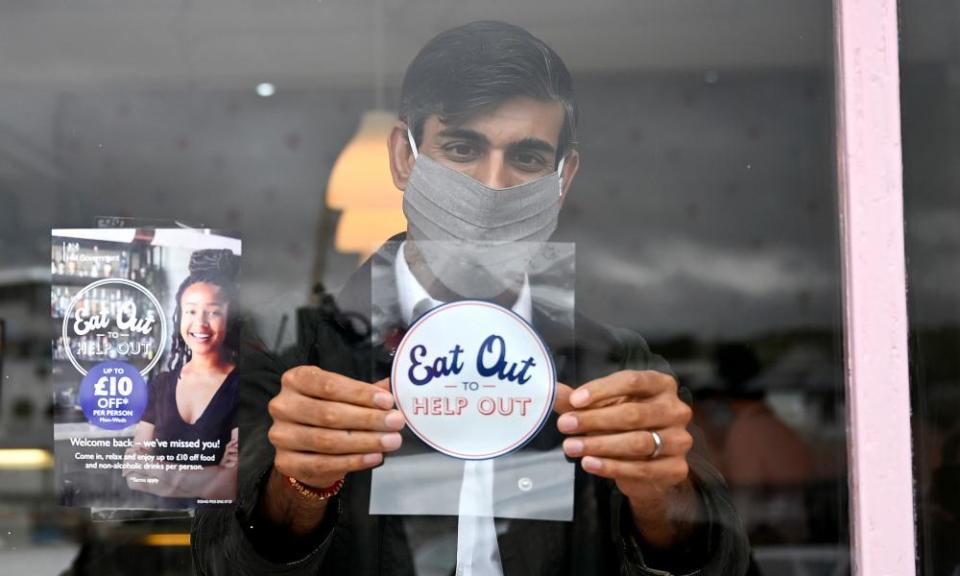Families of Covid victims to confront Johnson at inquiry over ‘Let the bodies pile high’ comment
Families bereaved during the Covid-19 pandemic will this week confront Boris Johnson over claims that he told colleagues he would prefer to see people die in large numbers than order a second lockdown that would harm the economy.
Many relatives who lost loves ones will descend on the Covid inquiry en masse on Wednesday and Thursday, when Johnson will give two days of evidence in what promises to be the most emotionally charged and explosive sessions of the official investigation so far.
The families are planning to greet Johnson on his arrival with photographs of those who died.
They will also unveil a billboard poster by the campaign group 38 Degrees with the comment “Let the bodies pile high”, which former advisers, including Dominic Cummings, claim Johnson made at a key meeting in Downing Street in late 2020.
The inquiry has already heard that the government’s former chief scientific adviser, Sir Patrick Vallance, noted in his diary on 25 October 2020: “PM meeting – begins to argue for letting it all rip. Saying yes, there will be more casualties, but so be it – ‘they have had a good innings’.”
The same entry also quoted Johnson as saying: “Most people who die have reached their time anyway.”
Another former adviser to Johnson, Lord Udny-Lister, has also told the inquiry that he too heard the comments about letting the bodies pile high.
Johnson has strongly denied having used such words. Cummings, however, says he heard his boss make the remarks after also declaring “No more fucking lockdowns” in November 2020, following a meeting in which Johnson had felt he had been corralled into agreeing to four weeks of restrictions against his instincts.
At the time a source corroborated the Cummings account to the Guardian and hinted that the comments had been heard by a small number of people outside Johnson’s office.
The relatives are this weekend still waiting to hear from the inquiry about arrangements for putting questions to the former prime minister.
Nicola Brook, solicitor at Broudie Jackson Canter, who represents the 7,000 members of the Covid-19 Bereaved Families for Justice group, said: “Our clients want us to focus on three core questions, namely: in the face of a wealth of scientific advice, why was there so much indecision, delay and dithering, which undoubtedly led to more deaths? Did Mr Johnson view older people as expendable? And does he share Matt Hancock’s view that the first lockdown happened way too late?”
One of those who will be attending on Wednesday is Naomi Fulop, who lost her mother during the second wave of Covid, a few days before one of the infamous lockdown-busting parties held in Downing Street during Johnson’s premiership.
“I want him to directly answer questions about the mistakes that he made, first of all leading up to the first lockdown,” she told the Observer. “It’s clear from the evidence we’ve already heard from senior scientists that the lockdown was called late.
“But even more unforgivably, following that first wave [what is his explanation for] not learning the lessons in advance of winter 2020 to 2021, and making a number of unforced huge mistakes in ignoring scientific advice about the two-week circuit breaker in September and having policies like ‘eat out to help out’.

“So, mistake on mistake, ignoring scientists’ advice, leading to the second wave in 2020 to 2021, which was even worse than the first wave. That’s when my mother died.”
Fulop said Johnson had to explain “the terrible things” he is supposed to have said. He has to account for those decisions and how he made them. Did his views on ‘Let the bodies pile high’ and ‘They’ve had a good innings’ influence those decisions?
“He seems to be revealing what he thinks – how did that influence his decision-making?”
Johnson has had many months to prepare for his appearance, along with a team of lawyers paid for by the Cabinet Office, as is the case with the legal expenses of all “core participants”.
He is expected to apologise for decisions that he and the government got wrong but make clear that in his view he got many of the major judgments right, including that about the vaccine.
Related: Covid inquiry: 10 questions facing Boris Johnson
It is also understood that Johnson will try to frame his evidence in a way that avoids criticism of individuals including Cummings, who has likened Johnson to an out-of-control shopping trolley.
Johnson wants his evidence to come across as constructive and helpful in assisting the inquiry in reaching conclusions on how the government can react better to another pandemic.
Johnson is likely to be asked what he knew in advance about the controversial “eat out to help out” policy introduced by his successor but one, Rishi Sunak, in August 2020, when Sunak was chancellor.
The scheme, which offered discounts for people going out to dine in restaurants, was regarded as high-risk by scientists who feared it would cause a spike in infections at a time when the government was still battling to control the virus.
Several scientists and even former health secretary Matt Hancock have said they were not consulted in advance about the scheme.
Sunak will appear at the inquiry next week.

 Yahoo News
Yahoo News 
